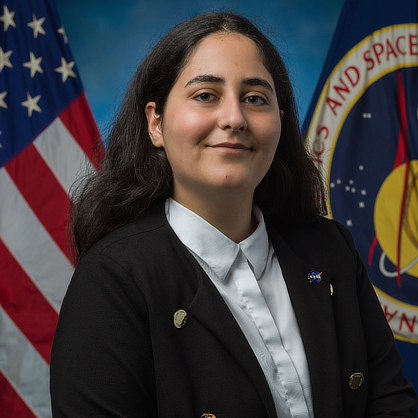
Amna Al-Azdee
NASA & LANXESS Internships
Public Safety is tracking a significant snowfall that will be arriving in our area late Sunday morning (Jan. 25). It will snow heavily throughout the day and evening eventually tapering off Monday (Jan. 26) with 10-14 inches expected statewide. A sleet and freezing rain mix is also possible along the shore. Temperatures will be in the teens and twenties.
Due to this significant winter storm and the extensive campus clean-up operations that will need to take place, all in-person day and evening classes scheduled for Monday, January 26, 2026 have been cancelled. All scheduled in-person classes will transition to being held online or remotely. Additional information on the virtual format for each class will be provided by your instructor.
Faculty have been asked to prepare for Online or Remote sessions in the event of in-person meeting cancellations. These options will be determined by the Faculty member and all questions should be directed to the Faculty teaching each course section. Faculty also have been asked to be very understanding and accommodating of the individual situations of their students who may have difficulty managing these alternative online or remote class meetings on short notice.
Please note that only essential employees, as previously determined by their respective department leaders, should report to campus. All other employees should fulfill the requirements of their role remotely.
Campus operations for residential students, unless otherwise noted, will operate as scheduled, though hours may be modified or changed based on the conditions. Separate messages will be sent from the Peterson Library, the Beckerman Recreation Center, and Dining Services regarding any changes to their normal hours of operation. The Bergami Center for Science, Technology, and Innovation will remain open for residential students to use for study space and to participate in online classes.
Off-campus students that live in the City of West Haven should abide by the city’s parking ban during inclement weather to avoid having their vehicle tagged and towed. Please check the City of West Haven’s website for further information on their snow parking ban.
As a chemical and biomolecular engineer, you will transform matter or energy into forms that benefit human beings. You might design clean energy solutions, innovate new solutions to biomedical issues, perform research and development in pharmaceuticals, develop new materials for spaceships, or create new ways to feed the world’s growing population.
The foundation you will build in chemistry, physics, biology, and mathematics – and your collaborations involving engineering disciplines such as computer science, and biomedical, mechanical, electrical, and civil engineering – will prepare you to rise to the challenges that face both the modern-day chemical and biomolecular engineer and the world. Those challenges — hallmarks of the early 21st century — include environmental integrity, limited resources, and human health and safety.
Our Chemical and Biomolecular Engineering faculty are leaders and innovators in their fields, bringing both deep professional experience and academic rigor to the classroom.

NASA & LANXESS Internships

LATICRETE International Inc. Internship
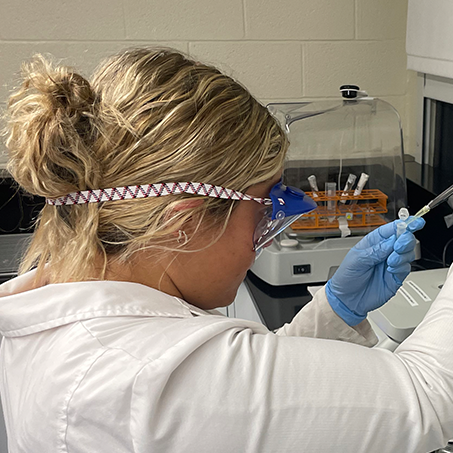
SURF has been a great learning opportunity for me.
Chemical Process Engineer
2.6% Growth 2024-2034
Biomedical Engineers
5.2% Growth 2024-2034
Biomedical and Chemical Engineering Technicians
1.5% Growth 2024-2034
Prerequisite or co-requisite: MATH 1115.
Students are introduced to the the chemical and biomolecular engineering profession and opportunities in this field. Students develop the skills required to successfully plan and implement selected projects within budgetary and time constraints using project management software. Project(s) use LabVIEW© programming for data acquisition and control, and CAD tools and presentation software for technical communication of design information.
Prerequisites: COMM 1130, EASC 1120, EASC 2211.
Students develop the skills required to successfully plan and implement experiments and projects within time constraints. A variety of software products are utilized for computer data acquisition and control, and technical communication. Students gain proficiency in each of these areas as they are applied to a series of projects spanning the course.
Prerequisites: EASC 2211, EASC 2213, MATH 1118.
An expansive study of thermal and fluid principles and applications including laws of thermodynamics, basic power cycles, conservation laws, internal and external flows, and convective heat transfer. Cross-listed with EASC 2224.
Prerequisite: CHME 2220. Co-requisite: MATH 2203.
Homogeneous and heterogeneous catalyzed and noncatalyzed reaction kinetics for flow and batch chemical reactors. Application of kinetic data to both isothermal and nonisothermal reactor design. This course is intended for both chemists and chemical engineers.
Prerequisites: CHME 3310 or CHME 3315 or MECH 3321; EASC 2230, MATH 2204.
Fundamental principles of chemical process dynamics used in the measurement and control of process variables such as temperature, pressure, and flow rate. Development of linear and nonlinear dynamic process models, stability analysis, and control system design using analytical and computer methods. Analysis, design, and tuning of process loops using computer simulations.
The University of New Haven offers a wide variety of in-depth courses that create a transformational educational experience for our students. To view the complete list of courses you'll take while pursuing a Bachelor of Science in Chemical and Biomolecular Engineering, check out the Academic Catalog:
Chemical and Biomolecular Engineering - General Concentration, B.S.
Chemical and Biomolecular Engineering - Biomedical Engineering Concentration, B.S.
Learn about earning college credit through Project Lead the Way.
Get an inside look at what differentiates the University of New Haven and how your experiences as a student will prepare you for success.
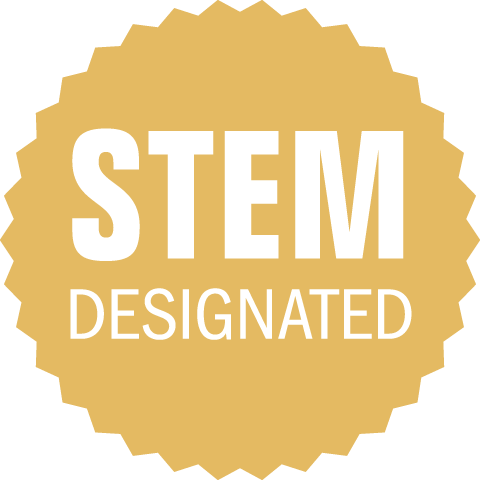



All University of New Haven students have access to the many resources available through the University’s Career Development Center, which has been named one of the best in the nation by The Princeton Review.
From career assessments, networking, and job shadowing to on-campus interviews and salary negotiation, the Career Development Center provides the skills and connections to identify a meaningful career and an opportunity to pursue your passion.
Learn More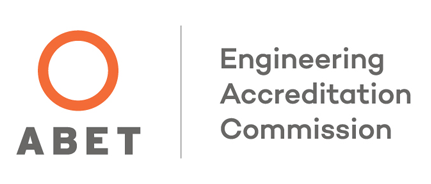
The B.S. program in Chemical and Biomolecular Engineering is accredited by the Engineering Accreditation Commission of ABET, https://www.abet.org, under the commission’s General Criteria and Program Criteria for Chemical, Biochemical, Biomolecular and Similarly Named Engineering Programs.
Chemical and Biomolecular Engineering Program Objectives and Outcomes
Enrollment and Graduation Data for the Tagliatela College of Engineering
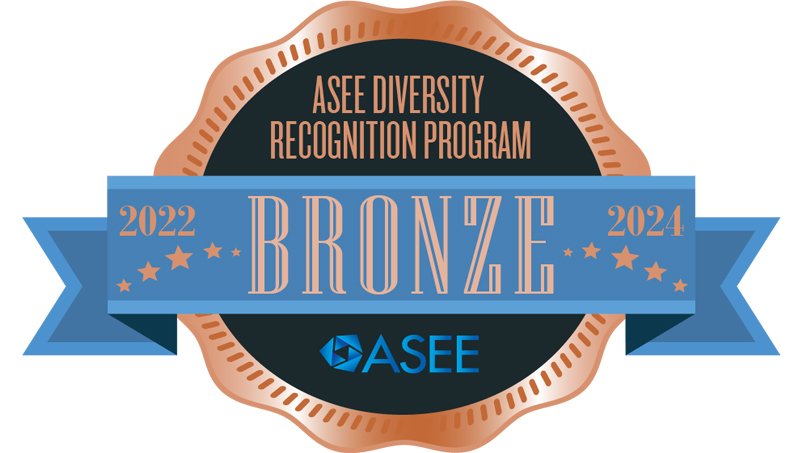
For its diversity, equity and inclusion efforts the Tagliatela College of Engineering has been recognized at the Bronze Level by the American Society of Engineering Education's Diversity Recognition Program.
Learn MoreThe University’s Tagliatela College of Engineering is again rated in the top third in its category (institutions that do not offer a doctorate in engineering).
Learn More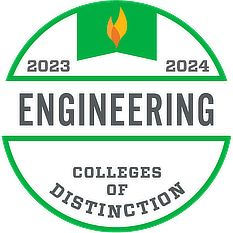
The University of New Haven was named a "College of Distinction" by Colleges of Distinction, a national online higher education guide that assesses colleges for its engaged students, great teaching, and vibrant campus communities. The Universitys engineering programs received special distinction for its internships and opportunities for real-world experience.
Learn More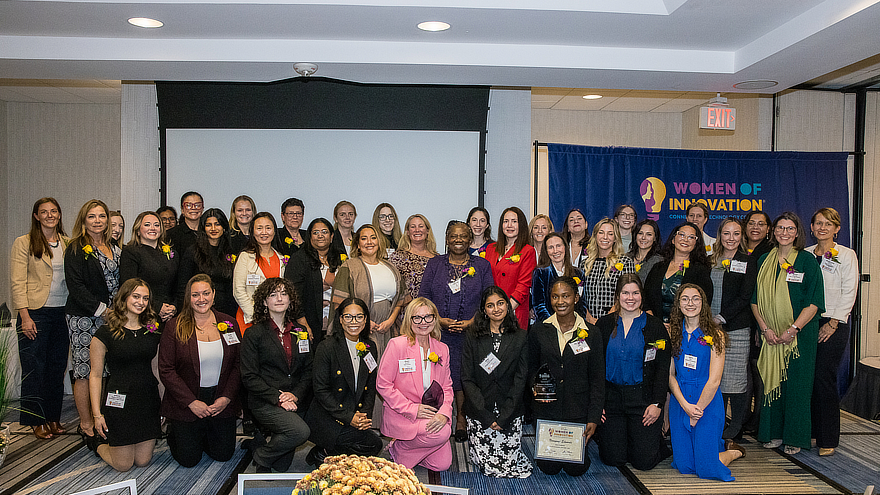
The Charger Blog
Tagliatela College of Engineering Professors Kristine Horvat, Ph.D., and Nagasree Garapati, Ph.D., as well as Amna Al-Azdee ’28, ’29 M.S. were named Women of Innovation award finalists who were hailed as “trailblazers, leaders, role models, and change-makers,” in academia, industry and the community.
Whether you're still in high school or are transferring from another college, we offer full- and part-time opportunities for undergraduates from inside the U.S. and abroad. The admission process can begin as early as the end of your high school junior year.
The Application Process
We offer a comprehensive financial aid program, with students receiving assistance in the form of grants, scholarships, student loans, and part-time employment. Funds are available from federal and state governments, private sponsors, and from university resources. More than 85 percent of the University's full-time undergraduate students receive some form of financial assistance.
Learn More